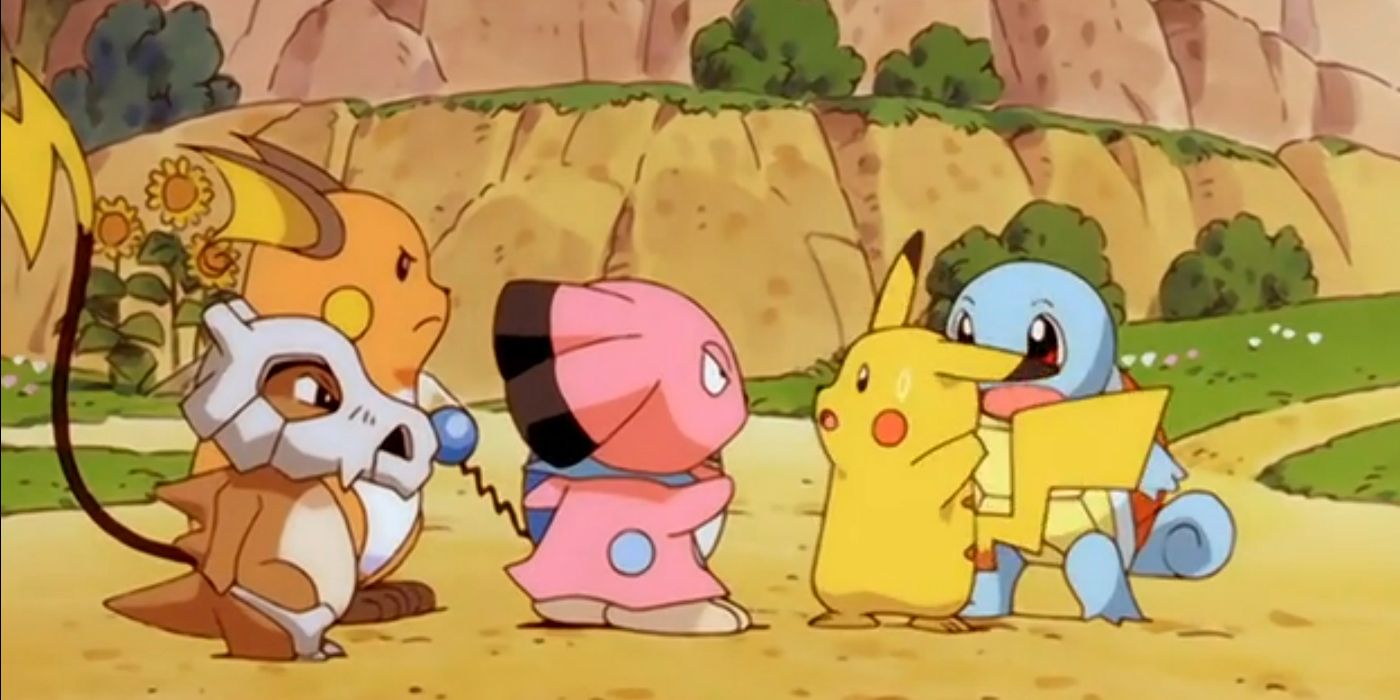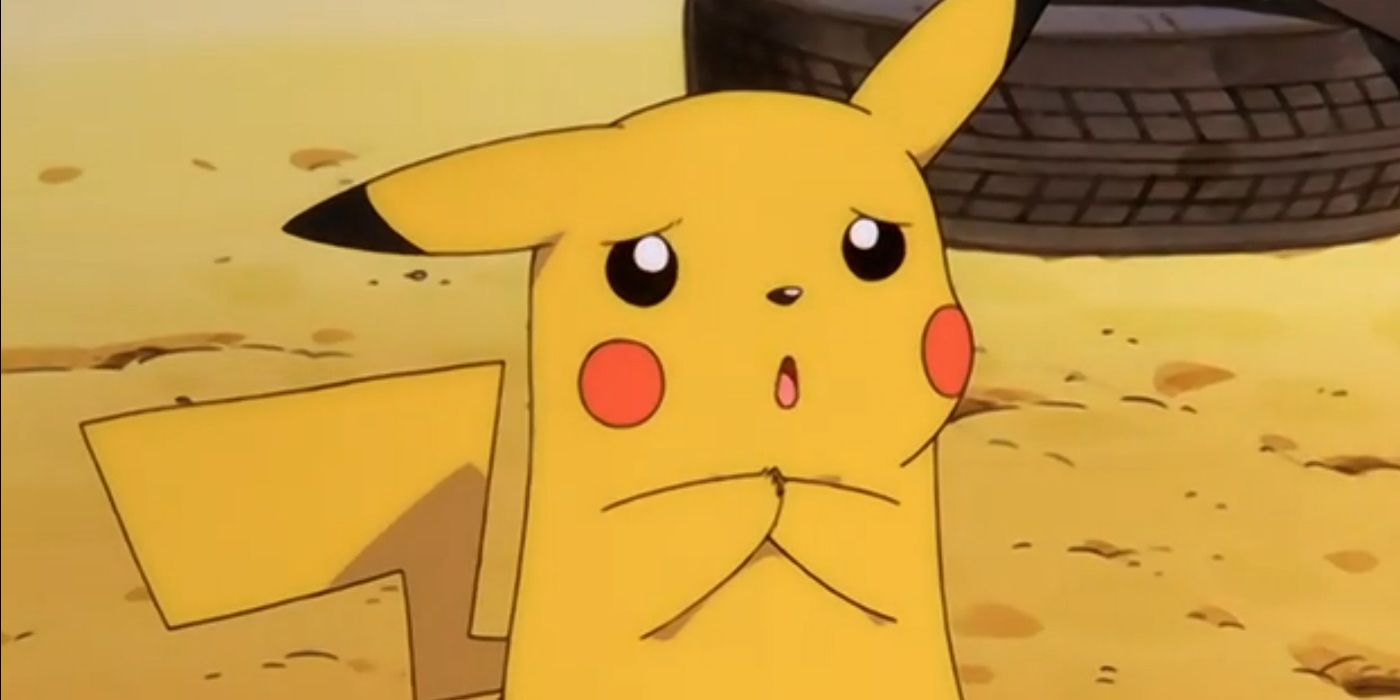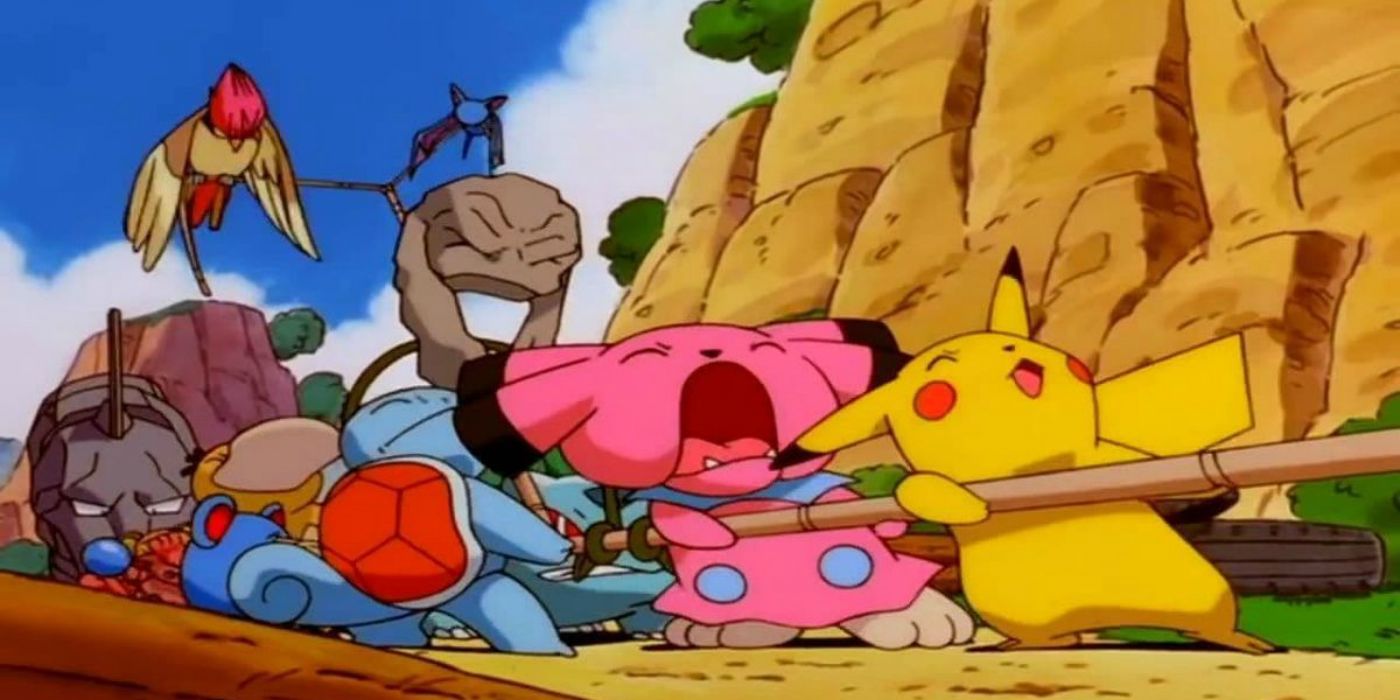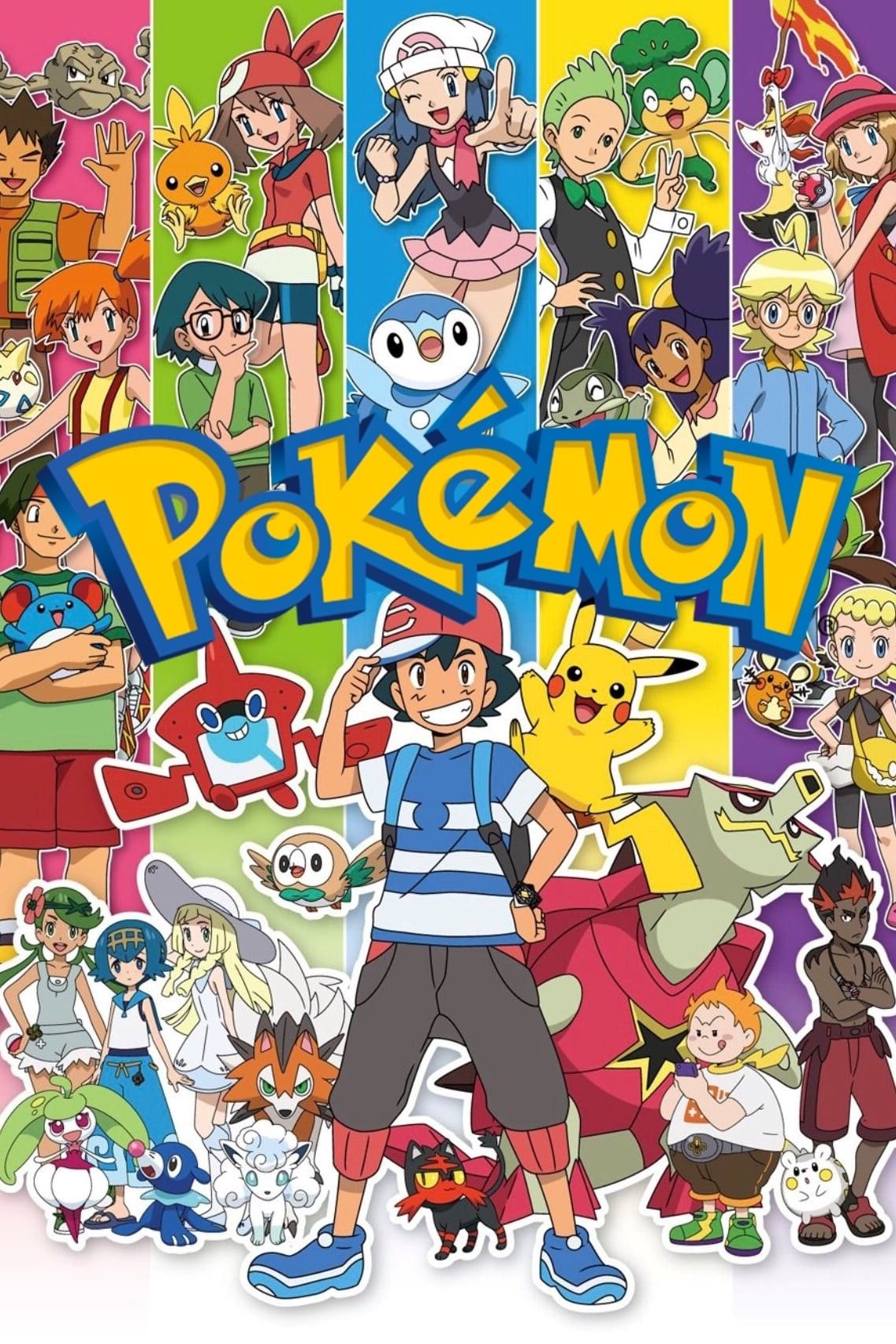One of the Pokémon anime’s most impressive features has also at times been one of its most maligned: episodes focusing heavily on Pokémon, with little dialog from human characters. Since Pokémon can only say their own names, they’re fairly limited in what they can convey through speech, and it’s all the other ways that the anime gets ideas across using Pokémon that are truly impressive.
A joke among parents at the time when Pokémon first became popular was that the anime made no sense, thanks to all the meaningless Pokémon dialog. This even escalated to the point of being a Robot Chicken sketch, with Pikachu and Squirtle talking to each other using their names until finally Squirtle loses it, because of the meaningless nature of their conversation.

However, the fact of the matter is that the Pokémon anime actually handles scenes that involve only Pokémon extremely well, and it does so by utilizing other methods of conveying ideas than just stating them out loud.
The Anime’s Pokémon-focused Episodes Can Tell Great Stories, Too

One of the areas where the anime’s nonverbal storytelling is really on display is in the “Pikachu” shorts, which generally accompanied the release of movies and featured (almost) exclusively Pokémon characters. Pikachu’s Vacation, the first such short that came attached to the first Mewtwo Strikes Back film, features some narration from the Pokédex, but otherwise is without dialog (a few lines from Meowth excepted), and still manages to tell the story of rowdy Pokémon waking up Togepi, and Pikachu and the others getting into a fight with this rival group as a result.
Storytelling without dialog is extremely difficult; it requires relying on things like the character’s design and capacity to communicate emotion with body language to get the proper feeling across. In the case of the Pikachu shorts, they often rely heavily on music as well, which can also convey the intended emotion of a scene. There are plenty of episodes of the main series which mostly focus on Pokémon or have Pokémon-only segments, such as the recent episode of Pokémon Horizons featuring Captain Pikachu’s fight club. It’s amazing to see how the tone of the scene changes as it goes on, and even though no intelligible dialog takes place, one can easily see how Polteageist is welcomed into the group.
Pokémon Are Designed To Be Expressive

Pokémon are designed to be expressive creatures, which makes them perfectly suited for scenes without much dialog. Their faces are mostly designed to convey emotion easily, especially in the anime, and even the inflection with which a Pokémon says its name can help to inform the audience of its mood. The Pokémon anime expertly uses these traits to have Pokémon help with storytelling rather than detract from it. While a scene featuring only Pokémon talking to each other might seem inane without context, these scenes are actually about as well done as they could possibly be. More so than almost any other anime, the Pokémon anime is a master of storytelling without dialog, and that’s something that should be recognized.

Pokemon
- Summary:
- Spanning over twenty-five years, Pokemon, known as Pocket Monsters in Japan, is the multimedia franchise created jointly by Nintendo, Game Freak, and Creatures. Conceptualized by Satoshi Tajiri in association with Ken Sugimori and Junichi Masuda, Pokemon is set in fictional worlds where people live together with tamable creatures known as Pokemon. Humans who catch, raise, and battle the creatures are known as Pokemon Trainers. They head out on extensive journeys across their continents to raise their Pokemon with the ultimate goal of competing in tournaments to become the champion. Pokemon spans several massive properties, from a long-running animated series to a successful trading card game, to the medium that started it all, video games. In addition, Pokemon began the “two-game” trend where two versions of a game would release and include different Pokemon/features between the versions, encouraging players to meet up with others and trade so they could “catch ’em all.”
- Created by:
- Satoshi Taijiri, Ken Sugimori, Junichi Masuda
- First Film:
- Pokemon: The First Movie
- Latest Film:
- Pokémon the Movie: Secrets of the Jungle
- First TV Show:
- Pokemon
- First Episode Air Date:
- 1997-04-01
- Current Series:
- Pokemon
- TV Show(s):
- Pokemon
- Video Game(s):
- Pokemon Scarlet and Violet, Pokémon Legends: Arceus, Pokemon Snap, Pokémon GO




